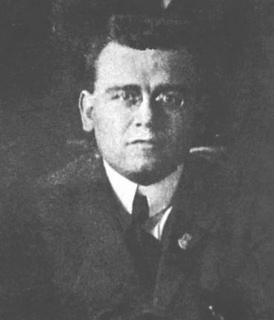A Quote by Deng Xiaoping
So far as Chairman Mao's own hopes were concerned, he initiated the "Cultural Revolution" in order to avert the restoration of capitalism, but he had made an erroneous assessment of China's actual situation. In the first place, the targets of the revolution were wrongly defined, which led to the effort to ferret out "capitalist roaders in power in the Party". Blows were dealt at leading cadres at all levels who had made contributions to the revolution and had practical experience, including Comrade Liu Shaoqi.
Quote Topics
Actual
Assessment
Avert
Blows
Capitalism
Capitalist
Chairman
Chairman Mao
China
Comrade
Concerned
Contributions
Cultural
Dealt
Defined
Effort
Experience
Far
First
First Place
Had
Hopes
Including
Leading
Led
Levels
Made
Mao
Order
Out
Own
Party
Place
Power
Practical
Practical Experience
Restoration
Revolution
Situation
Targets
Were
Which
Related Quotes
Chairman Mao creatively applied Marxism-Leninism to every aspect of the Chinese revolution, and he had creative views on philosophy, political science, military science, literature and art, and so on. Unfortunately, in the evening of his life, particularly during the "Cultural Revolution", he made mistakes - and they were not minor ones - which brought many misfortunes upon our Party, our state and our people.
In the last couple of years before Chairman Mao's death he said that the "Cultural Revolution" had been wrong on two counts: one was "overthrowing all", and the other was waging a "full-scale civil war". These two counts alone show that the "Cultural Revolution" cannot be called correct. Chairman Mao's mistake was a political mistake, and not a small one.
The degeneration of the revolution in Russia does not pass from the revolution for communism to the revolution for a developed kind of capitalism, but to a pure capitalist revolution. It runs in parallel with world-wide capitalist domination which, by successive steps, eliminates old feudal and Asiatic forms in various zones. While the historical situation in the seventeenth, eighteenth and nineteenth centuries caused the capitalist revolution to take liberal forms, in the twentieth century it must have totalitarian and bureaucratic ones.
The Bolshevik revolution was a counter-revolution. Its first moves were to destroy and eliminate every socialist tendency that had developed in the pre-revolutionary period. Their goal was as they said; it wasn't a big secret. They regarded the Soviet Union as sort a backwater. They were orthodox Marxists, expecting a revolution in Germany. They moved toward what they themselves called "state capitalism," then they moved on to Stalinism. They called it democracy and called it socialism. The one claim was as ludicrous as the other.
It is Chairman Mao who should be held primarily responsible for the Great Leap Forward. But it didn't take him long - just a few months - to recognize his mistake, and he did so before the rest of us and proposed corrections. And in 1962, when because of some other factors those corrections had not been fully carried out, he made a self-criticism. But the lessons were not fully drawn, and as a result the "Cultural Revolution" erupted.
But above all, what this Congress can be remembered for is opening the way to a new American revolutiona peaceful revolution in which power was turned back to the peoplein which government at all levels was refreshed and renewed and made truly responsive. This can be a revolution as profound, as far-reaching, as exciting as that first revolution almost 200 years agoand it can mean that just 5 years from now America will enter its third century as a young nation new in spirit, with all the vigor and the freshness with which it began its first century.
In comparison to the French Revolution, the American Revolution has come to seem a parochial and rather dull event. This, despitethe fact that the American Revolution was successful--realizing the purposes of the revolutionaries and establishing a durable political regime--while the French Revolution was a resounding failure, devouring its own children and leading to an imperial despotism, followed by an eventual restoration of the monarchy.
When the industrial revolution happened there was the Luddistic movement, and there was a fear that machinery would replace all the labor. Whenever we had a technological revolution we had this fear. So if you look backwards, these fears were not justified, and I think they were driven by our very human inability to visualize what new jobs will be created by this new technology.
Except for the small revolutionary groups which exist in all countries, the whole world was determined upon preventing revolution in Spain. In particular the Communist Party, with Soviet Russia behind it, had thrown its whole weight against the revolution. It was the Communist thesis that revolution at this stage would be fatal and that what was to be aimed at in Spain was not workers' control, but bourgeois democracy. It hardly needs pointing out why 'liberal' capitalist opinion took the same line.
I visited Libya in September 1996 for the 27th anniversary of the 'revolution' - a military coup that a 27-year-old Gadhafi led to topple the monarchy and since which he has ruled. Some were optimistic that Gadhafi's 'revolution' could herald a new Libya, but it didn't take long for his brutality to stamp out any such hopes.
Whatever the country, capitalist or socialist, man was everywhere crushed by technology, made a stranger to his own work, imprisoned, forced into stupidity. The evil all arose from the fact that he had increased his needs rather than limited them; . . . As long as fresh needs continued to be created, so new frustrations would come into being. When had the decline begun? The day knowledge was preferred to wisdom and mere usefulness to beauty. . . . Only a moral revolution - not a social or political revolution - only a moral revolution would lead man back to his lost truth.





































